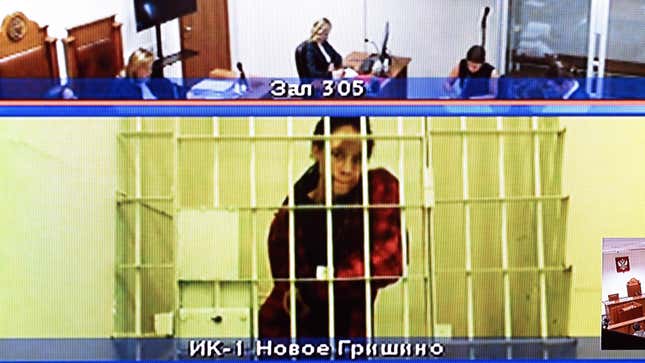Brittney Griner Headed for Penal Colony After Russian Court Rejects Appeal
Russian penal colonies are known for torturing their prisoners and forcing them to work 16-hour days.
JusticePolitics

On Tuesday morning, a Russian court rejected WNBA star Brittney Griner’s appeal and upheld her nine-year prison sentence, after she appeared in court via video link. Griner is now expected to be sent to a penal colony, where she will begin serving her sentence, according to the New York Times.
“We are very disappointed,” Griner’s lawyers Maria Blagovolina and Alexander Boykov said in a statement after the rejection, which was decided by a three-judge panel at an appeals court near Moscow, according to The Times. “The verdict contains numerous defects, and we hoped that the court of appeal would take them into consideration.” One such defect, as previously mentioned in Griner’s court testimony, was Russian officials’ failure to read or translate Griner her rights.
President Biden’s national security adviser, Jake Sullivan, called the decision “another sham judicial proceeding” and said in a statement to the Times that Griner “should be released immediately.”
-

-

-

-

-

-

-

-

-

-

-

-

-

-

-

-

-

-

-

-

-

-

-

-

-

-

-

-

-

-

-

-

-

-

-

-

-

-

-

-








































